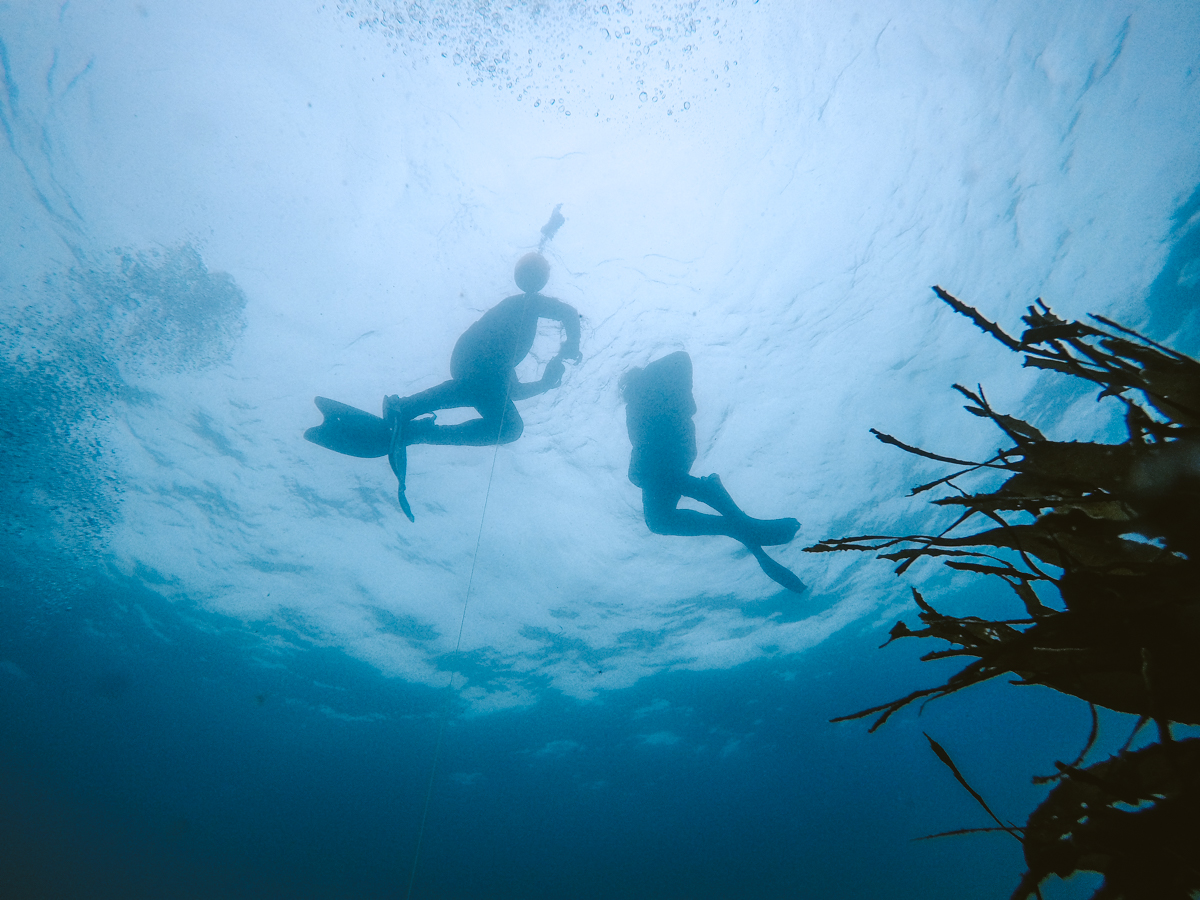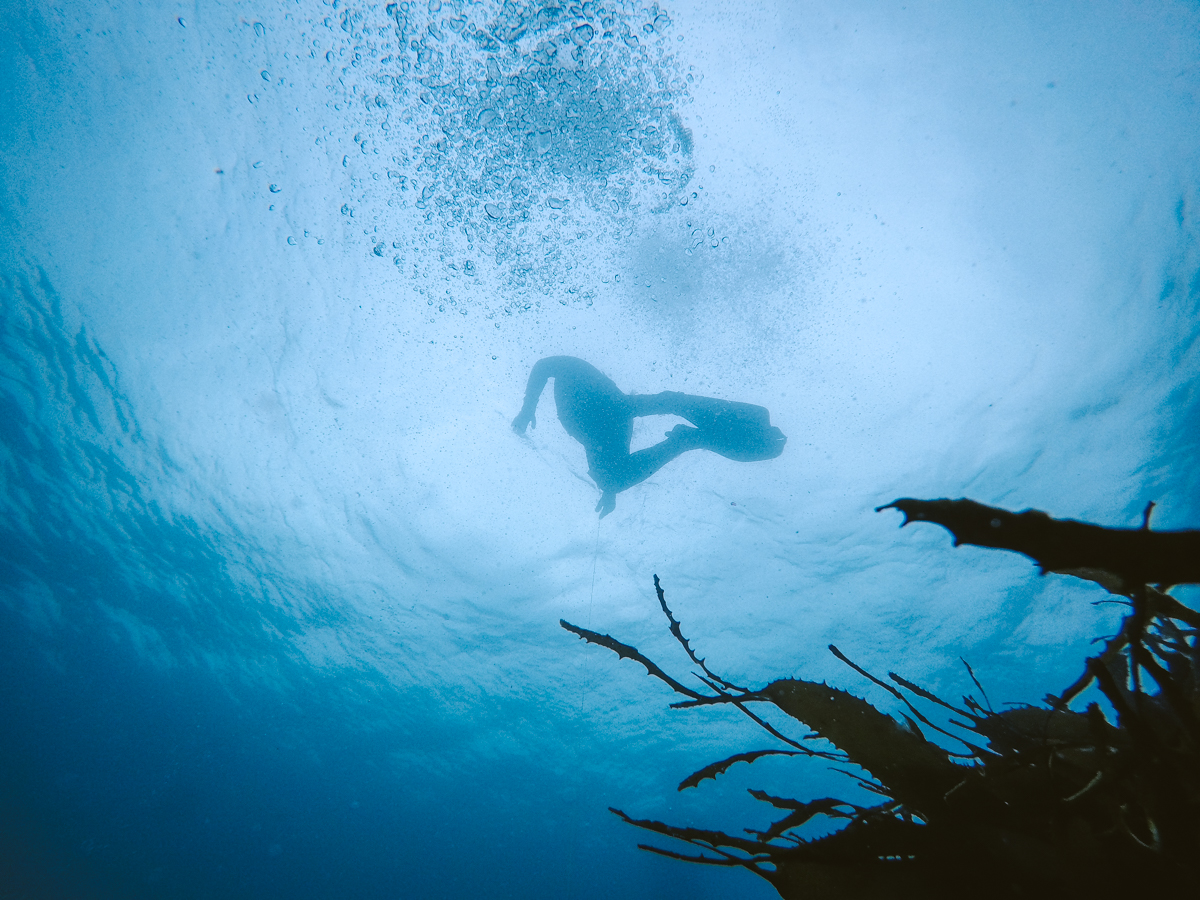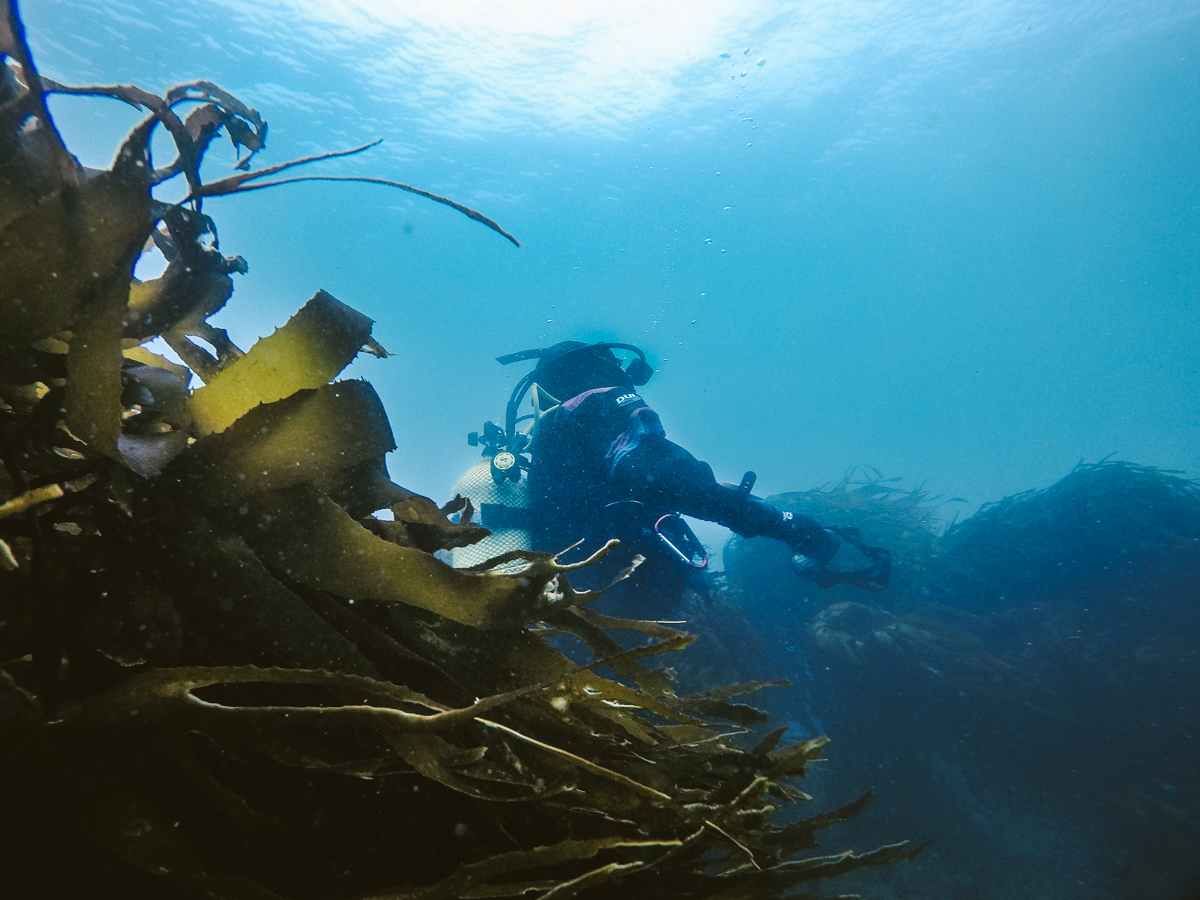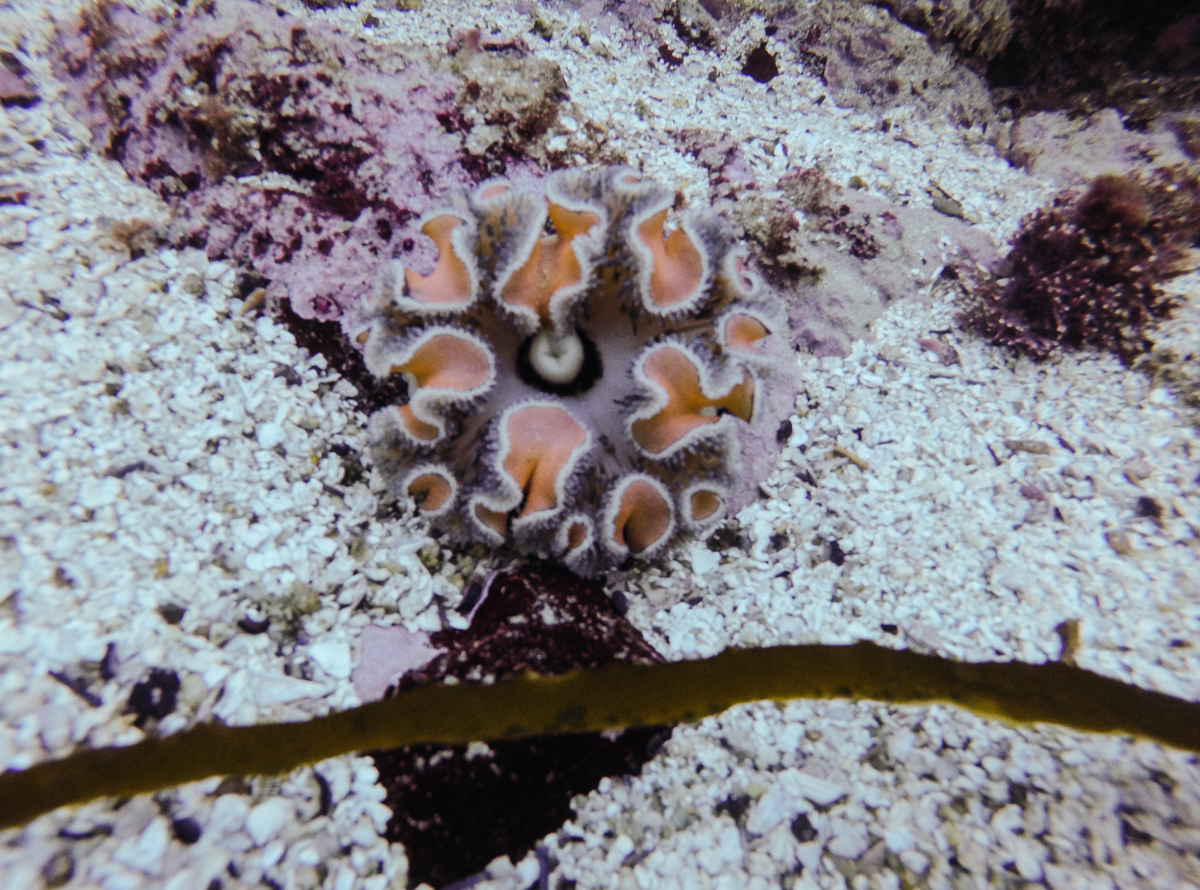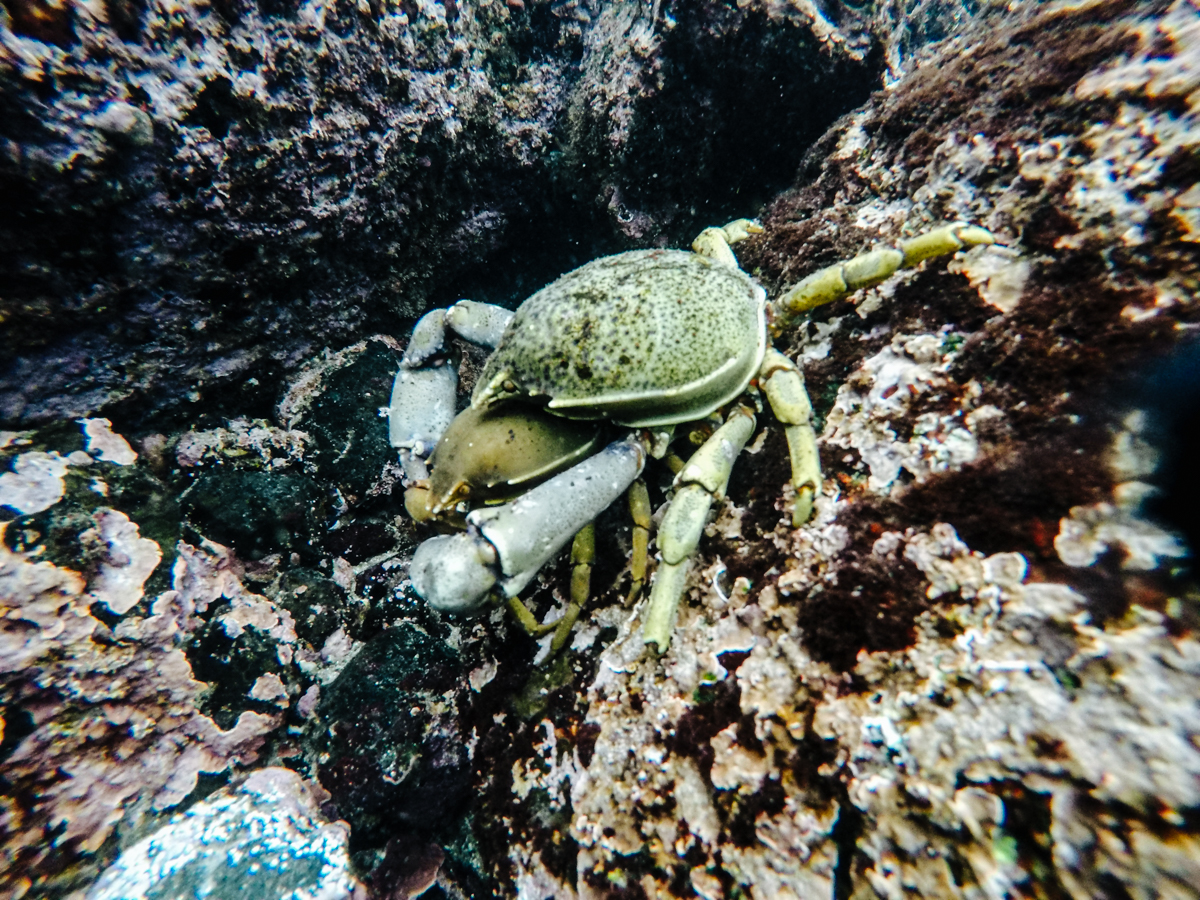One year ago I was fighting through exhaustion in the dead of night, willing myself to stay awake to study and get through another miserable day as I waited to go back home to Chile and finally work with something I adored. On those nights where my eyelids were heavy in the dim light of my desk lamp, diving in the ocean was something so far removed from me that I was beginning to wonder if the day would ever come. One year later, I am looking out over the sparkling waters I’d dreamed of for so long and I’ve been on several dives. It took a long time to get here, but I made it.
Diving feels like second nature to me. Diving is home. I want to dive all the time, I crave being beneath the blue waters and breathing deeper than I can on land. Everything about diving fascinates me, and being in the world I love more than anything deeply invigorates me. I cannot adequately explain in words how absolutely in love I am with diving and how much life it gives me.
But in spite of all that life I had found in diving, all of that joy and inner strength suddenly started to become overshadowed by something so much darker. A crack opened in myself and all of that bliss I had found through diving started to rush out from under me. I started to allow self-doubt and pressure from external factors suck all of the happiness out of diving, and after every dive I felt a profound heaviness I had never experienced during past dives. Slowly but surely, it began to affect my dive performance.
During one dive, I was helping mark kelp patches. I was trying out a different method for carrying the materials, but the bag attached to my BCD was a little tighter than I remembered and trying to maneuver the materials out of it became more and more difficult as I fought to pull them out. The seconds started to feel like minutes and my anxiety skyrocketed as my dive buddy waited for me while I struggled to hand him the materials. For the first time in all of my diving career, I felt myself nervously breathing from anxiety, and I was having difficulty slowing it down. That dive, I ran out of air far faster than I had in a long time. I was horrified, I was known for having good air consumption and I was proud of it. This dive, I had anxiously breathed through everything faster than I could control it, and I knew that it was completely my fault. I came up from that dive feeling defeated and angry with myself.
While developing my diving skills in the States, I told myself that I had to work diligently to become self-sufficient. I had to look experienced or no one would want to take me diving or give me the experience I needed for my career. I made sure I could prepare my equipment with no help and that I could do all of the diving techniques as professionally as possible so that I would be of help to others rather than a hindrance. It took several dives, but eventually I began to feel a confidence in myself that I had never felt before. It felt wonderful to feel like that, and I was so happy to finally find something that made me feel that way. But, now that I was finally completing the dives that I had trained to do, all of that pressure began to weigh on me. Kind suggestions from people who were simply trying to help me suddenly felt like a laundry list of all the things I had done wrong and I was terrified that I looked too inexperienced to be considered of use to anyone.
I put a lot of pressure on myself. I fight perfection on a daily basis. I let things simmer and worry about if I said the right thing or if I hurt someone’s feelings or came across the wrong way. Sometimes it makes me so sick I can barely sleep or eat. I resented that I had allowed negative energy and nervous tension to choke the thing I loved, but it was becoming difficult to push the feeling off.
The tipping point came somewhat recently. We went on a training dive for multiple people, and I would have to perform some training exercises as well. Most of the training exercises were basic and I had done them before as part of my initial training, and while I was a little irked that I had to do them again considering I had the certification I went along with the plan. I was concerned that I had to do them in the first place because of my inexperience, but I figured that if I showed that I could competently complete the tasks, perhaps I would stop being treated like a beginner or stop feeling as though was too inexperienced. Perhaps this was finally my chance to prove myself. I waited patiently while the other divers practiced their training and I watched as a curious clan of shrimp made their way towards me. Eventually my turn came and we dove to a spot at about 11 meters/35 feet so that I could complete the exercises in a deep enough location. I had to complete the mask removal and clearing, replacing my SCUBA kit, buddy breathing, and neutral buoyancy. Clearing my mask was no issue, I had plenty of training with the task and I was able to remove and replace it quickly. Replacing the SCUBA kit was another story. This technique is useful to have in case of an emergency; on rare occasions you could get entangled in something such as kelp or fishing line and it may be necessary to take the BCD vest and tank completely off your body and then replace it after untangling yourself. This is an unnerving skill for most people because once you take that weight off, the neoprene starts to take over and your body tries to float towards the surface, which is dangerous. There was only one technique I had issues with during my training, and this one was it. I knew in advance that I would have difficulty with the technique but I was willing to give it another try because it was important. In the cool blue water several meters/feet from the surface, I closed my eyes, took a deep breath, and I began to undo my vest. As soon as I took it off, I felt my body begin to float. I stopped everything I was doing and held the tank close to me to help keep me down. For about two seconds, I considered aborting the exercise, but I knew that if I did it I would never hear the end of it. Not to mention, I knew deep down I could complete it. The only thing preventing me from completing the exercise was fear, and I had to overcome it. I motioned my buddy to get closer to me, and he placed his weight on one of my fins to help keep me down and his hand on my arm to let me know he was there. I took a deep breath, swung my kit onto my knee, and then immediately replaced it. In that moment, I was proud of myself. It had gone far better than my first try, and I had done it calmly. However, the next exercise did not go over well. I was told that we would be sharing air, so my initial thought was the regular “give your octopus to your buddy and let them breathe off it” type of sharing air. I was very wrong. I had never heard of buddy breathing (an older SCUBA practice that was popular before a second emergency regulator was part of the standard diving kit; it is not a common technique and is used more to test stress while diving), so I was completely confused and did not complete the exercise the way it was intended. It certainly wasn’t my fault, but I still was not happy about it because I knew it made me look incredibly inexperienced.
Me completing the mask clearing exercise.
I should have come up from that dive feeling as though I had accomplished something. I didn’t. I came up completely defeated. “Very good, Brooke!” my dive buddy had said, but none of that really sank in. I was told several times that day that I had done well, but I didn’t believe any of it and just felt tremendously upset with myself. This had been the first dive in a month due to bad sea conditions, and I nearly cried alone in the office thinking that it may be another month before I had the opportunity to try again. I felt as though I had one chance to truly savor the dive time and learn and that I had ruined it by allowing self-doubt and pressure to drain everything wonderful from it.
I realized a few things after that dive. One of the most important things you need to do is talk about how you feel. When you are part of a team, it’s important that you communicate with that team and that you know what is expected of you and what isn’t. I discovered I had been placing way too much pressure on myself to accomplish things I wasn’t expected to do for quite some time. I had also been accidentally coming off as a “know-it-all” because every time someone mentioned something I had done wrong or something I needed to work on, I had an excuse for my actions. In reality, did always have a valid excuse, and all of my “mistakes” were well thought out and executed based on my training. I never just did them blindly, and I felt like I needed them to know that or else they would think less of me. But, I was appearing as though I was inflexible or unwilling to learn, which was the exact opposite of how I felt. I always want to learn, and every good diver knows that they are constantly learning. You could have 3,000 dives and still have a lot to learn. If we had not communicated about the situation, we would have been going in circles forever and I would have been miserable trying to work my way up to something that was completely out of my control while they would have become increasingly concerned about me or frustrated. Regardless of how terrifying it is, you have to communicate your feelings. You have to be open and honest with people. If they look down on you for your inexperience or for needing to talk about the things that are bothering you, that is their problem.
In the future, I am going to work on placing less pressure on myself and going with an open mind. I am going to find that joy I once had during diving. I am going to love it again. But it may take a little while, and it won’t happen overnight. I will keep fighting to get back to that point, though. I will enjoy diving again.
I have had many wonderful moments during my dives, however. One of the most exhilarating moments for me happened while I was waiting for my dive buddy to finish quadrat samples. I was hovering over a spot when I noticed a pintarroja (a species of catshark) dart past me. I was sad that it was so quick, I hardly had the chance to admire it. Suddenly, I felt as though there was something underneath me. I looked below me to see a beautiful, large pintarroja sitting directly below me. I couldn’t believe how close I was, and I tried to remain as still as possible and breathe as deeply as I could in order to produce less bubbles that could disturb the shark. I watched as its gills moved back and forth as it seemingly ignored me. Eventually my presence became too much and the shark took off, but I was elated to have seen it. Another time I saw one of the biggest borrachillas (one of my favorite fish species here in Chile) I had ever seen. It was enormous and a vivid yellow-green, and it was bravely defending its territory as two smaller borrachillas desperately tried to enter its rock crevice. Another time I saw a huge, gorgeous rollizo (a long, slender-bodied fish with white spots) as I was moving to a new site. Both of us stopped and looked at each other for a few seconds, and eventually the rollizo decided I was not a threat and continued off in the direction it was going. On the last dive where I completed my exercises, I saw a school of fish larvae moving together in the current as I practiced neutral buoyancy, and I watched as the hundreds of little fish moved together as one group through the clearing towards the kelp forests. That same dive, my buddy noticed a beautiful flounder and pushed me towards it so I could get a photograph. Sadly the fish took off as soon as I was about to press the shutter, but it was still lovely that we were able to see such a magnificent creature.
These moments and others like it are the moments I need to cling to. These are the moments that should be determining my dives. I cannot allow my insecurities to ruin the beauty that I’ve encountered. I’m taking back the happiness that I stole from myself. I’m going to be an excited, happy diver yet again. It might take some time, but I will get there. I promise.
Photo: Rodrigo Alarcon

